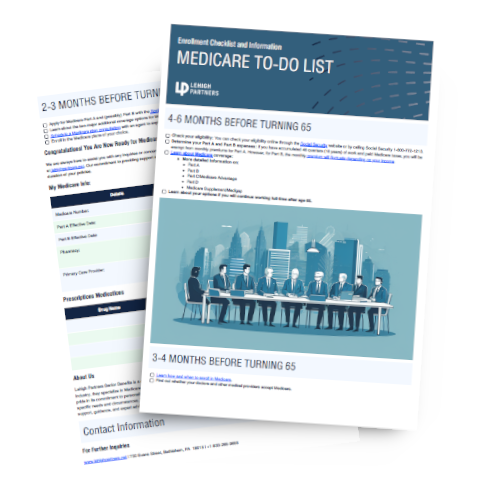
Medicare Part B covers cardiovascular screening blood tests once every five years, with no costs to beneficiaries if their healthcare provider accepts assignment
Taking proactive steps to prioritize our heart health is crucial, especially as we age. Thankfully, Medicare offers coverage for cardiovascular disease screenings, ensuring that individuals have access to vital tests that can detect potential risks. In this blog post, we will explore the coverage provided by Medicare Part B (Medical Insurance) for cardiovascular screening blood tests and delve into the importance of these screenings in preventing heart attacks and strokes.
Medicare Part B Coverage:
Under Medicare Part B, beneficiaries are eligible for cardiovascular screening blood tests once every five years. These screenings primarily involve blood tests to measure cholesterol, lipid, and triglyceride levels. By examining these markers, healthcare professionals can detect underlying conditions that may increase the risk of heart attacks or strokes.
Costs:
The good news is that Original Medicare covers the costs of cardiovascular disease screenings. With Medicare Part B, beneficiaries pay absolutely nothing for these tests, provided that their doctor or healthcare provider accepts assignment. This means that individuals can undergo these crucial screenings without any financial burden.
Medicare Advantage Part C Coverage:
Medicare Advantage plans, also known as Medicare Part C, offer an alternative way to receive your Medicare benefits. These plans are provided by private insurance companies that contract with Medicare to offer comprehensive coverage, often including additional benefits beyond what Original Medicare offers.
When it comes to cardiovascular disease screenings, Medicare Advantage plans are required to cover these screenings without applying deductibles, copayments, or coinsurance, as long as you visit an in-network provider and meet Medicare's eligibility requirements for the service. This means that beneficiaries who have a Medicare Advantage plan can have peace of mind knowing that they can undergo cardiovascular disease screenings at no additional cost.
It's important to note that Medicare Advantage plans may have their specific rules and guidelines regarding which specific cardiovascular disease screenings are covered, and how frequently they are covered. Therefore, it is always advisable to review the specific details of your Medicare Advantage plan to understand the coverage it provides for cardiovascular disease screenings.
Additionally, Medicare Advantage plans may offer additional wellness and preventive services to help manage and prevent cardiovascular diseases. These services may include rehabilitation programs, doctor visits, diagnostic tests, medications, and surgery for cardiovascular conditions2.
In summary, Medicare Advantage plans generally provide coverage for cardiovascular disease screenings without applying deductibles, copayments, or coinsurance. However, coverage details may vary between plans, so it's essential to review your specific plan for detailed information on cardiovascular disease screenings and related services.
Take control of your Medicare plan selection!
Find your perfect Medicare plan today! Contact our experienced agents for personalized guidance and don't miss out on the benefits you deserve!

Significance of Cardiovascular Disease Screenings:
Maintaining optimal heart health is essential for overall well-being, and early detection of cardiovascular risks is key to preventing serious heart complications. By monitoring cholesterol, lipid, and triglyceride levels through routine screenings, healthcare providers can identify potential issues before they escalate into heart attacks or strokes.
These screenings offer valuable insights into an individual's cardiovascular health. Elevated cholesterol levels, for example, may indicate a higher risk of developing atherosclerosis (hardening of the arteries), which can impede blood flow to the heart. With early detection, appropriate interventions such as lifestyle changes and medication can be prescribed to manage these risk factors effectively.
Furthermore, cardiovascular disease screenings allow doctors to provide personalized guidance to patients based on their individual results. By understanding their specific risk factors, individuals can take proactive steps to improve their heart health, such as adopting a heart-healthy diet, staying physically active, quitting smoking, and managing stress.
Taking Action for Heart Health:
If you are unsure about your risk factors or haven't had a cardiovascular disease screening in a while, now is the perfect time to discuss it with your doctor. Working together with your healthcare provider, you can determine when it is appropriate to undergo a cardiovascular screening blood test based on your medical history and existing risk factors.
Remember, Medicare Part B has your back when it comes to cardiovascular disease screenings. By taking advantage of this coverage, you can actively prioritize your heart health and reduce the risk of heart attacks and strokes.
Conclusion: Maintaining heart health is of utmost importance, especially as we age. Thankfully, Medicare provides coverage for cardiovascular disease screenings, including vital blood tests to detect potential risks. By taking advantage of this Medicare Part B coverage, you can actively monitor your heart health and make informed decisions to prevent serious heart complications. Don't delay, prioritize your heart health today!
Visit CDC.gov to learn more about preventing heart disease.

